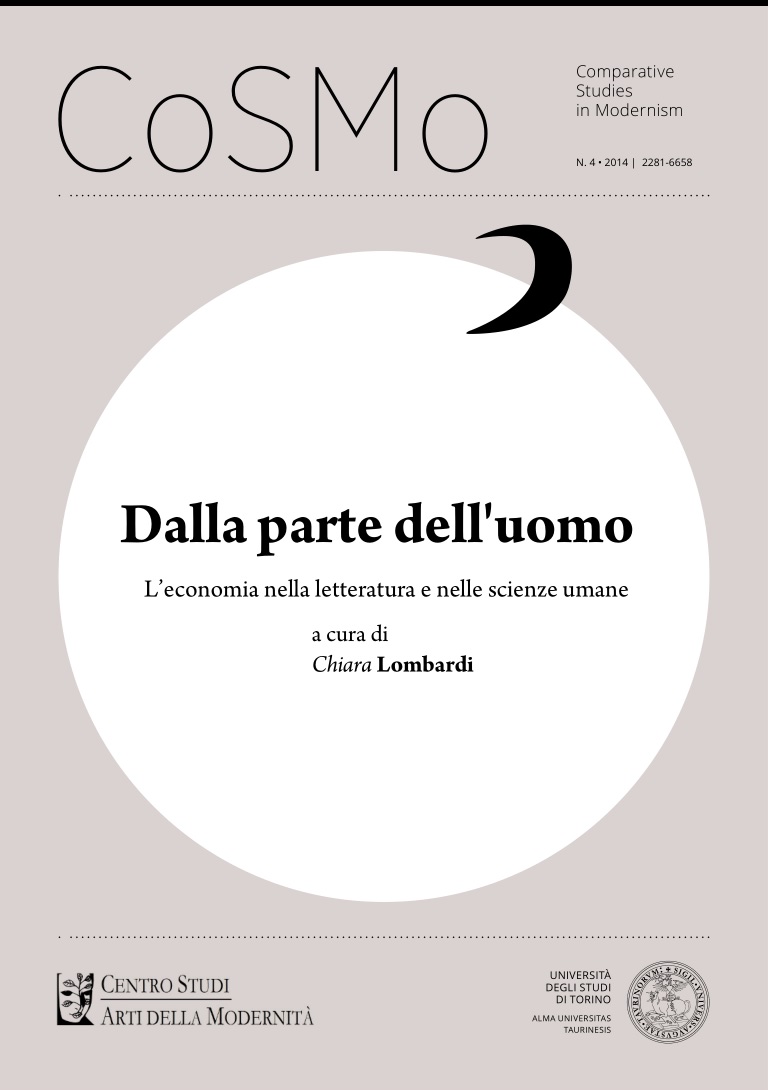Pound and Economics: The Beginnings
DOI:
https://doi.org/10.13135/2281-6658/612Keywords:
Pound, Economics, UsuryAbstract
Pound’s economics is largely based on his poetic notion of “usura” surfacing for the first time in the war sections of Hugh Selwyn Mauberley and based on C. H. Douglas’s unorthodox underconsumptionist theory of Social Credit. Since Pound is not an economist but a poet, in order to understand the way in which economics permeates his poetry and essays one should bear in mind that Pound’s utopian crusade against financiers is closely tied to his avant-garde efforts to create a new poetic language. In this essay I will briefly survey four stages decisively shaping his early economic ‘education’: first, his London experiences in the radical magazine The New Age with its strong Ruskinian allegiances; secondly, his own American agrarian background which consciously or unconsciously and in various hues, stayed with him his whole life; thirdly, his editing Eliot’s The Waste Land along with the idea of art as handicraft; finally I will examine one of the Hell Cantos where the financiers’ corrupting economics merges with the corruption of language.Downloads
Downloads
Published
Issue
Section
License
Authors keep the copyrights for their work and give the journal the work’s first publication copyright, which is at the same time licensed under a Creative Commons License – Attribution, which in turn allows other parties to share the work with an acknowledgement of the work's authorship and initial publication in this journal.
Content Licence

You are free to copy, distribute and transmit the work, and to adapt the work. You must attribute the work in the manner specified by the author or licensor (but not in any way that suggests that they endorse you or your use of the work).
Metadata licence

CoSMo published articles metadata are dedicated to the public domain by waiving all publisher's rights to the work worldwide under copyright law, including all related and neighboring rights, to the extent allowed by law.
You can copy, modify, distribute and perform the work, even for commercial purposes, all without asking permission.





